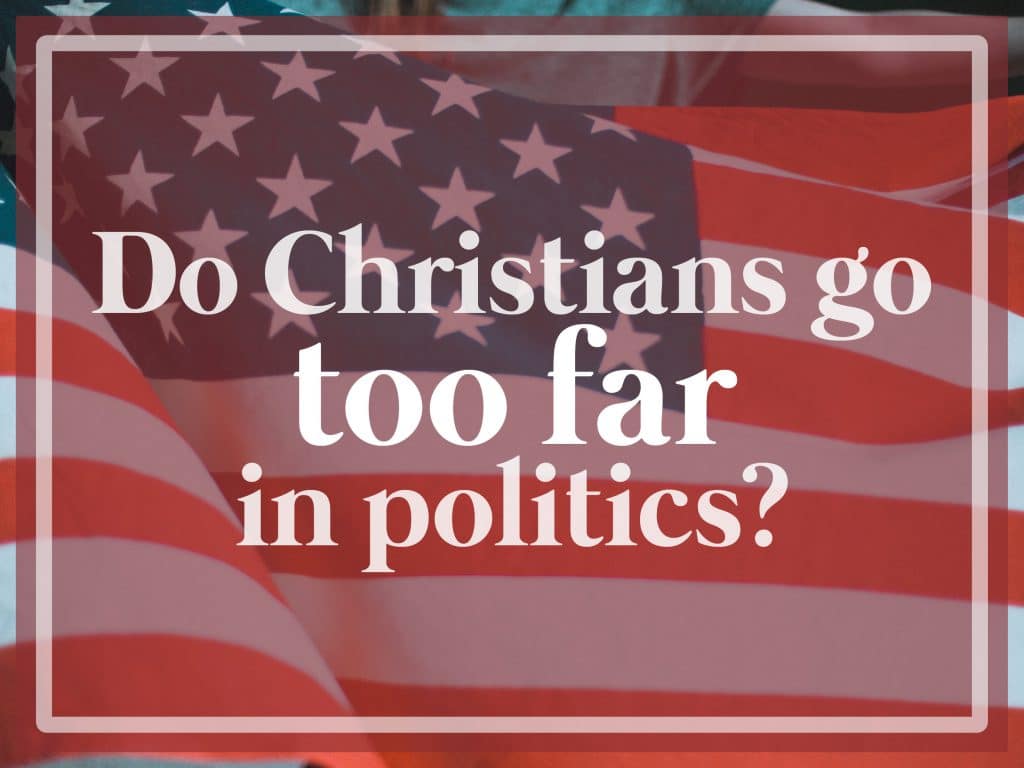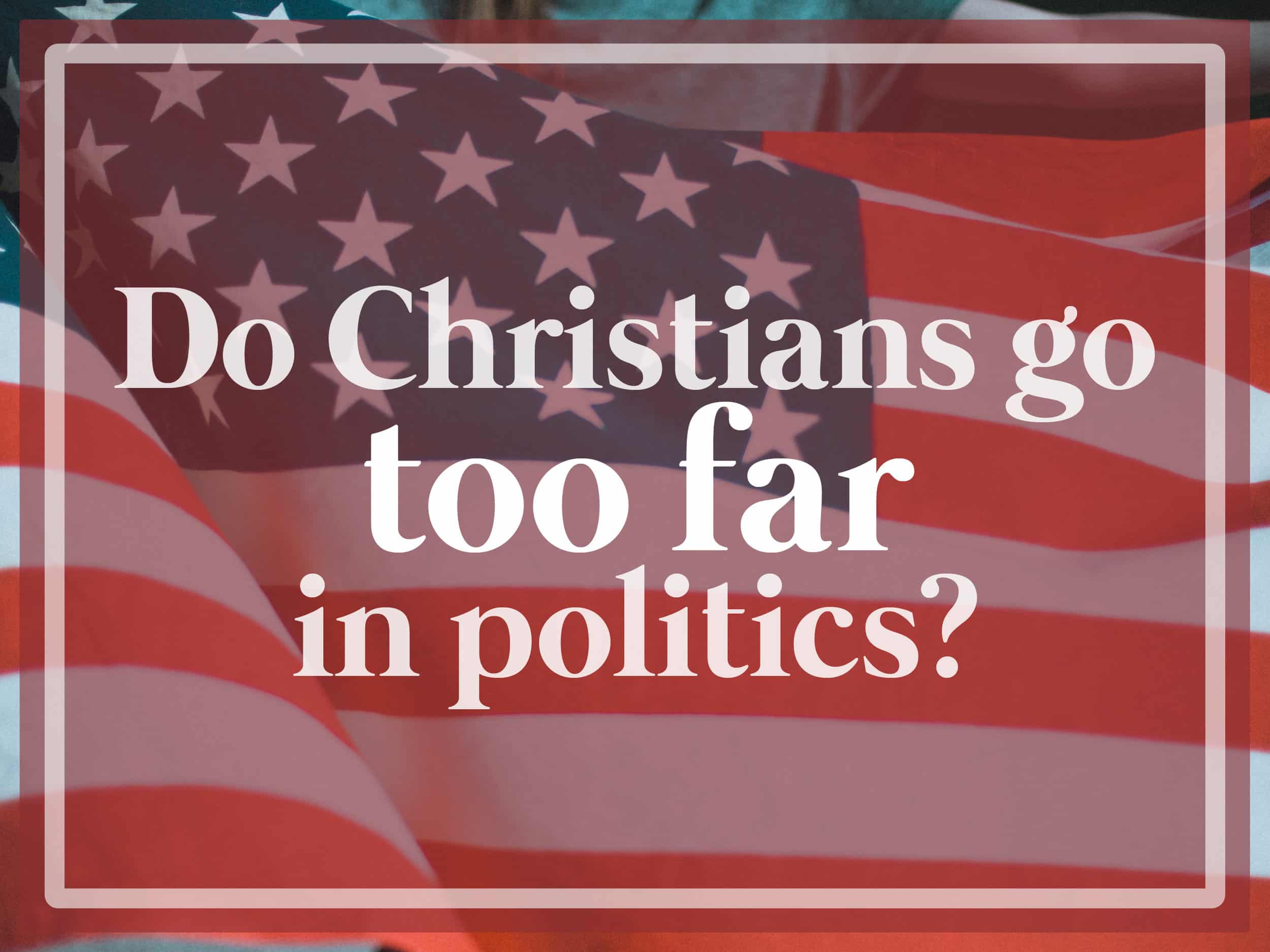
Opinion: Do Christians go too far in politics?
Margaret Milteer, The Vision Magazine graphic artist
Graphic courtesy of Emily Artus.
It’s been a long day and the weary college student is looking forward to only one thing: her bed. As she nestles in under her soft blanket and leans back into her perfectly plumped pillows, she pulls out her phone to set an alarm for the morning. Then a little red circle with a white number one pops up in the right hand corner of her Facebook app. Then it changes to a two, and then a three, and a then a four and the number just keeps climbing. She wracks her brain for some explanation. That’s when it hits her; she had posted an article about a political candidate that afternoon. Nervously, she opens the app to see what people have to say.
As she scrolls through the comments, some people are agreeing with her, some politely disagreeing with her, and a shocking number of people are not only disagreeing with her but are resorting to personal attacks in order to prove that she does not know what she is talking about. To her dismay, many of these people commenting things that decry her character, are the same Christians she went to church with for many years.
Too often Christians seem to see the political arena as a free pass. When politics are on the table, anything goes and nothing is too low a blow.
In his article titled “Seven Things Christians Need to Remember About Politics,” Bryan Roberts says, “Political discourse is the Las Vegas of Christianity—the environment in which our sin is excused. Hate is winked at, fear is perpetuated and strife is applauded.”
Laura Dyer, a senior at North Greenville University, and a Christian who is doing her best to be politically informed says, “I’ve seen Christians turn on each other because they think, politically, they know what all the right answers are. They refuse to believe that more than one option could be right, so they attack the character of those who disagree with them. As a Church we should be unified in one body under Christ. This does not mean we should all have the same opinion, however, it does mean that we should be working together to further the love of God.”
It is the right and the duty of the Christian to be politically active, however, where do Christians need to draw the line? When does “political discourse” become “un-Christian?”
Dyer continues by saying, “When we attack fellow believers or unbelievers because they do not agree with us politically we are not fulfilling our goal or doing our job. Also, when we sacrifice our morality for politics it just makes us look really bad.” Earlier in the interview she referred to the primary job of the Christian as serving God and spreading his love among all people.”
Like anything, Christians acting unchristian in the public arena is not a constant thing. Sometimes the voices are negative but sometimes, however seldom, the voices might be positive.
In Michael Weir’s 2014 article titled “The Changing Face of Christian Politics,” he had a more hopeful view of things. He stated, “It is the case that in 2013, for the first time in decades, the loudest Christian voices were the peacemakers. The hopeful. The grace-givers. Sure, the same-old people who profit from conflict still have their megaphones, but they are starting to be drowned out by those who prefer partnership to opposition and conversation to screeds.”
For the Christian on the internet today, it would seem that much has changed since 2013. The loudest voices are no longer those of the peacemakers but of those who want their opinion known and accepted by all by whatever means.
It seems, like most things, that Christianity in politics goes through seasons. It is up to the individual Christian to take a stand and fight for Christian values both in the voting booth, but also on Facebook and in all forms of political discourse.

